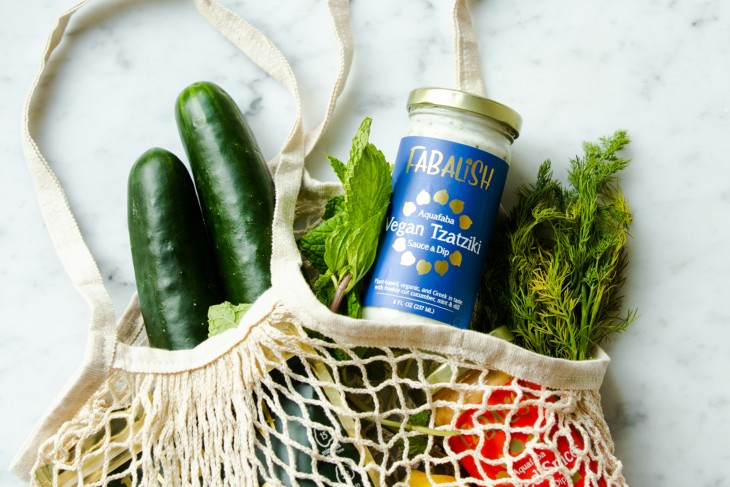I will first say that I don’t like grocery shopping. It’s boring, and I can never remember where anything is. But it’s necessary, and it’s expensive, and if you don’t figure out how to shop on a budget, then you’ll find your bank account screaming for mercy by the end of the month.
1. Stick to discounted products
Most of the time, if you look at your grocery app’s store, you’ll find that there’s a pretty good weekly discount on essential proteins. They’re not there every day, and I have no idea how stores like Albert Heijn choose what to discount, but I’ve always found that ground beef and tofu always come on sale at least once a week. It’s not much – usually a one to two euro discount – but if you keep this in your thoughts, and have a weekly rotation on what to buy, and plan different types of meals with these ingredients throughout the week, then your savings should add up.
2. Get a giant bag of potatoes, onions, and rice
If you’re a student on a budget, then you can’t really be a choosing beggar. Though do know that what you can ask for can also be delicious, and a base of potatoes/rice and onions can be exactly that. There’s so much versatility in these foods – I personally don’t eat a lot of potatoes, but when I’m cooking rice I’m basically cooking half of my meal, every meal. You can always incorporate potatoes or rice into your food, and as a student, you should be minimising the costs while maximising the benefits, so this is a no-brainer. While you’re at it, get a rice cooker – saves both time and an extra stovetop. These carbs make up a lot of what you’re going to eat, and thankfully they’re not super expensive, especially if you know where to look.
3. Shop at Asian stores
Going to Asian stores is fun: there are a bunch of cool sweets and exotic spices to try. Do remember, though, that you’re on a budget, and you should only stick to what you need. What can you get in an Asian store that you can’t get in a normal store? The answer to that is simple: spices and rice! I’ve found that these things are always cheaper in Asian stores, while at the same time being better-tasting and coming in larger portions.
4. Buy your meat in Turkish shops
I’ve said it before and I’ll say it again: meat is cheaper and of better quality in Turkish shops. It’s not the end of the world if you keep buying meat from your supermarket chain, but for the value that you get from Turkish shops – why wouldn’t you shop here?
This is a trade secret: most supermarket chains don’t sell chicken by the kilo. Turkish shops do – and the price per kilo of chicken breast is most of the time cheaper than the price you would pay for 800 grams of chicken breast in a grocery store.
5. Check out budget-cooking websites
Back when I was first starting out my university career, I would frequent these sites because a) I didn’t know how to cook and b) usually, their budget recipes were pretty good. If you’re also confused on where to start, I would suggest a site like Budgetbytes.com to help you out, even if it’s just to tell you what to buy. The site is in dollars, but you can still gauge what the cheaper meals are by looking at their recipe catalogue.
6. When you can, buy frozen ingredients
Frozen ingredients, such as vegetables, are in my opinion one of the best things you can buy on a budget, purely because they last so long. Fresh ingredients, while infinitely better, won’t last you too long in the fridge, so swallow your pride and get those frozen peas + carrots combo and use it in your meals. Frozen vegetables are often cheaper as well.
7. Make a list and stick to it
Rotational schedules! This is what makes lists work so well – you can buy the same things every week, and have something new to eat every couple of days. Here’s what mine looks like roughly:
- Proteins: eggs, chicken breast, canned tuna, tofu, and peanut butter
- Vegetables: spinach, shallots, garlic, onions, broccoli, spring onions, frozen peas + carrots
- Dairy: full milk, butter, cheese, yoghurt
- Carbs: rice (basmati has the best price/taste ratio in my opinion), potatoes, bread
- Snacks: granola bars, popcorn, bag of gummies
- Condiments: soy sauce, oyster sauce, sesame oil, and vinegar
Obviously, I don’t buy everything on my list all at once, and sometimes if I’m feeling daring I’ll buy red meat. But usually, if you’ve got an idea of what’s in your pantry, what you want to cook, and how much time you want to dedicate to cooking, then your weekly trips to the grocery store should cost you around 30-40 Euros, which is a perfectly reasonable amount to be spending on your weekly food.
Grocery shopping as a university student doesn’t need to be expensive. With some planning, some compromising, a lot of persistence and a sprinkle of budgeting and creativity, you can have delicious and fulfilling meals every day of the week. I’ve managed to save around 50 euros every month by doing these things, and once in a while I’ll spend a little more on myself if I want to cook something nice, as a reward. After all, college is about learning, so learn to take care of yourself and save some money along the way.




